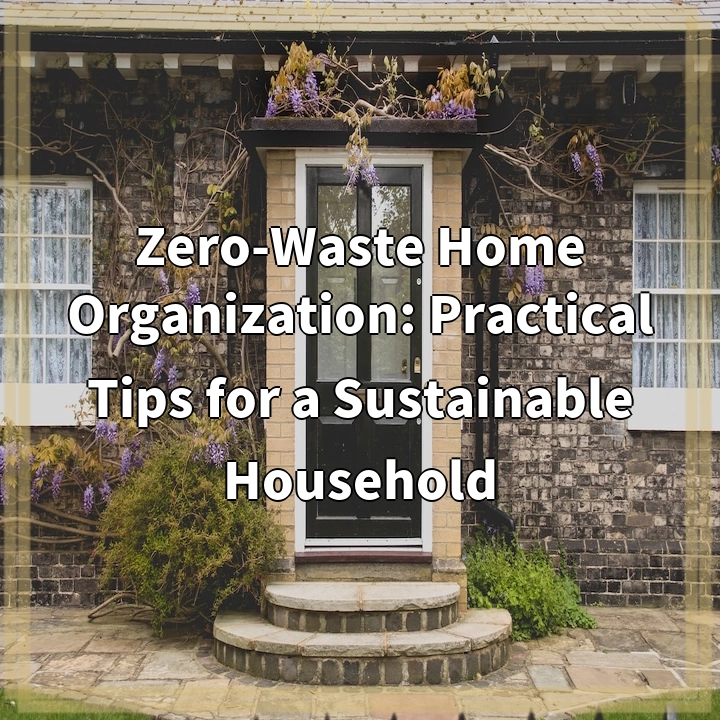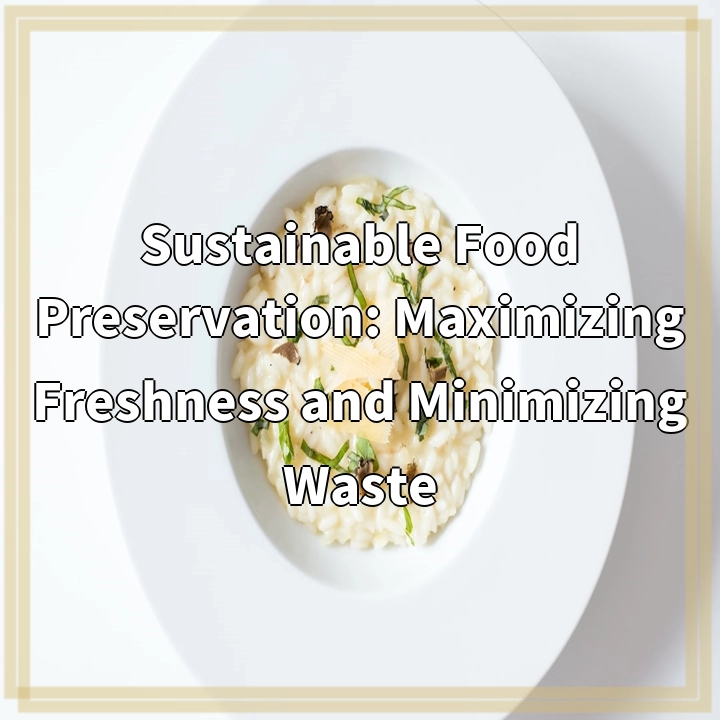
What is Zero-Waste Home Organization?
Zero-waste home organization is a holistic approach to managing household items and lifestyle choices with the goal of minimizing waste generation and maximizing sustainability. It involves organizing and streamlining our homes to reduce overall waste production, from everyday items to larger purchases and lifestyle habits.
Real-World Problems Associated with Zero-Waste Home Organization
While zero-waste home organization offers numerous benefits, there are certain challenges and real-world problems that individuals may encounter along the way. Understanding these hurdles can help us better navigate and overcome them. Here are some common roadblocks that people often face:
1. Limited Access to Bulk Stores or Zero-Waste Shops
One of the challenges with zero-waste home organization is the availability of bulk stores or zero-waste shops in certain areas. These stores provide package-free options for pantry staples, cleaning products, and personal care items. However, not everyone has easy access to these resources, making it more difficult to source package-free alternatives and reduce waste.
2. Time and Effort Required for Research and Planning
Transitioning to a zero-waste home requires time and effort for research and planning. It involves researching sustainable alternatives, finding local resources, and understanding how to properly recycle or compost different materials. This process can be overwhelming for individuals with busy schedules or limited access to information, making it challenging to implement changes.
3. Resistance from Family Members or Roommates
Adopting a zero-waste lifestyle often requires collaboration and support from family members or roommates. However, not everyone may share the same enthusiasm or motivation. Resistance from others can complicate the organization process, as it may be challenging to establish consistent waste reduction practices when living with individuals who have different priorities or habits.
4. Upfront Costs of Sustainable Alternatives
Investing in sustainable alternatives, such as reusable containers, cloth bags, or composting systems, can come with upfront costs. While these alternatives often save money in the long run, the initial investment can be a barrier for individuals on a tight budget. Finding affordable, eco-friendly options or gradually transitioning to zero-waste alternatives can help mitigate this challenge.
5. Social Expectations and Peer Pressure
Living a zero-waste lifestyle may sometimes conflict with social expectations or peer pressure. Attending events or gatherings where single-use items are prevalent can be challenging when striving to reduce waste. Balancing sustainability goals with social engagements can require creativity and assertiveness to navigate these situations without compromising one’s values.
6. Lack of Knowledge on Sustainable Practices
Many individuals may have limited knowledge of sustainable practices or may not fully understand the environmental impacts of their daily choices. This lack of awareness can hinder the adoption of zero-waste home organization. Education and raising awareness about the benefits and importance of waste reduction can help overcome this challenge.
By addressing these real-world problems and finding practical solutions, we can make significant progress towards achieving a zero-waste home organization, fostering a more sustainable and eco-friendly household.

Solutions to Real-World Problems in Zero-Waste Home Organization
Adopting a zero-waste home organization may present challenges, but with the right strategies and mindset, these obstacles can be overcome. Here are some actionable solutions to address the real-world problems associated with zero-waste living:
1. Seek Alternatives and Resources in Your Area
If bulk stores or zero-waste shops are limited in your area, explore small local businesses, farmers markets, or community-supported agriculture programs that offer package-free options. Additionally, consider joining online zero-waste communities and forums to connect with like-minded individuals who can share information and resources.
2. Prioritize and Allocate Time for Research and Planning
Carve out dedicated time to educate yourself about sustainable alternatives and waste reduction practices. Start by focusing on one aspect of your home or lifestyle at a time, such as reducing plastic waste or composting. Create a plan and set achievable goals for gradually incorporating zero-waste practices into your daily routine.
3. Communicate and Collaborate with Family Members or Roommates
Engage in open conversations with your family and roommates about the importance of waste reduction and its positive impact on the environment. Find common ground and propose compromises that accommodate everyone’s needs and values. Encourage a shared commitment to reducing waste and involve everyone in household organization efforts.
4. Start Small and Focus on Economical Alternatives
Transitioning to a zero-waste home does not necessitate an immediate financial burden. Start by repurposing items you already have in your home, such as glass jars, cloth bags, and old containers. Gradually invest in reusable and eco-friendly alternatives as your budget permits. Look for affordable options and consider DIY projects to save money.
5. Assert Your Values and Find Supportive Networks
While it may be challenging to align social expectations with your zero-waste goals, stay true to your values and confidently express your choices. Offer to bring your own reusable items to gatherings, or kindly decline certain single-use items. Seek out supportive communities and connect with individuals who share similar values to gain encouragement and solidarity.
6. Educate Yourself and Spread Awareness
Continue expanding your knowledge on sustainable practices to stay motivated and informed. Share your experiences and educate others about the environmental benefits of zero-waste home organization. Use social media platforms, start a blog, or participate in local events or workshops to raise awareness and inspire others to adopt waste reduction practices.
By implementing these solutions, you can overcome the real-world problems associated with zero-waste home organization and pave the way for a more sustainable and eco-friendly lifestyle. Remember, every small step matters in creating a positive impact on the environment.















